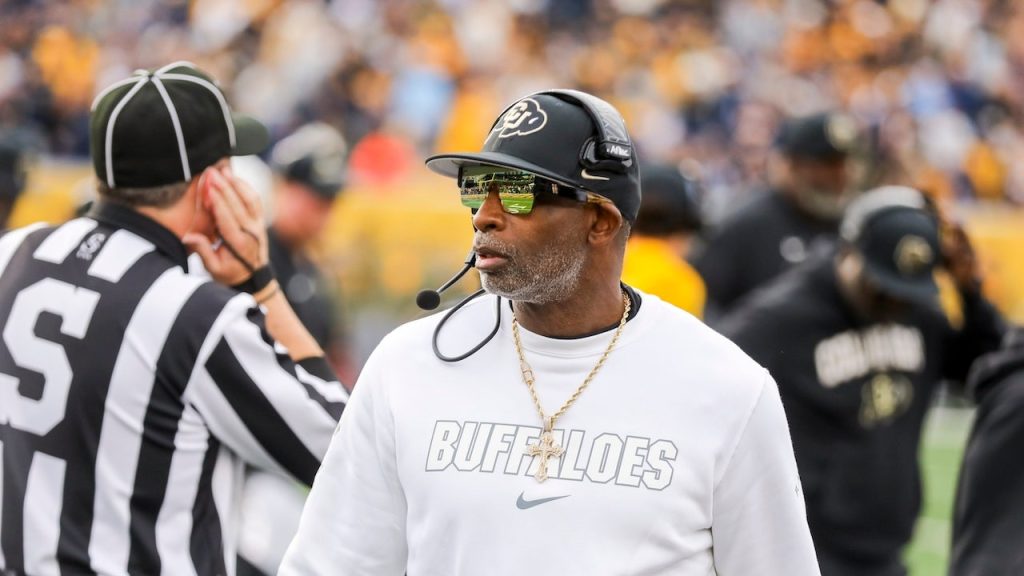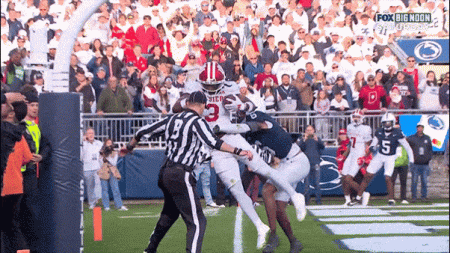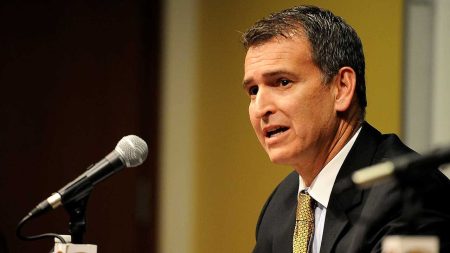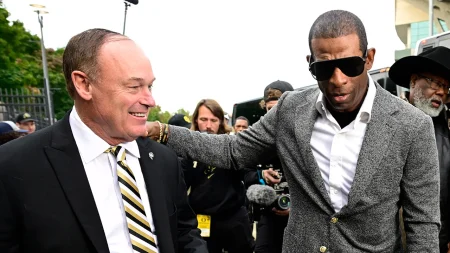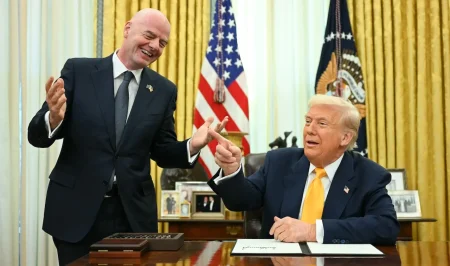Deion Sanders Faces Second Losing Season at Colorado Despite High Expectations
In a disheartening turn for Colorado football, head coach Deion Sanders’ team was officially eliminated from bowl contention following their 29-22 loss to West Virginia on Saturday. This marks Sanders’ second losing season in his short tenure with the Buffaloes, a disappointing outcome for a program that had shown promising signs of revival. Sanders, visibly frustrated after the game, took full responsibility for the team’s performance. “This is not who we are. We’re better than this, and they deserve better than this,” Sanders stated, emphasizing that he believes the talent is present in the locker room but the results aren’t materializing on the field. His candid self-assessment reflects the growing pains of a program in transition, as Sanders acknowledged that the coaching staff, starting with himself, needs to reevaluate their approach.
The 2024 season presented unique challenges for Sanders, as he faced his first collegiate campaign without his son Shedeur Sanders at quarterback and the versatile Travis Hunter, both of whom were instrumental during his coaching career at both Jackson State and Colorado. These two standout players had been cornerstones of Sanders’ previous success, and their departure to the NFL left significant voids that proved difficult to fill. Critics had questioned how the team would perform without these key players, and unfortunately, those concerns have materialized in the form of inconsistent play and missed opportunities throughout the season. The quarterback position in particular has been a revolving door, with Colorado cycling between Kaidon Salter and Ryan Staub before Sanders ultimately turned to five-star freshman Julian Lewis for Saturday’s must-win game.
Lewis’s insertion into the starting lineup represented a bold but potentially costly decision for Colorado’s future. The highly-touted freshman performed admirably in his collegiate debut, throwing two touchdown passes, but the move officially cost Lewis his redshirt status with just two meaningless games remaining in a season that won’t end in a bowl appearance. This decision raises questions about long-term planning versus short-term needs, as Lewis could have preserved a year of eligibility had he remained on the sidelines. Nevertheless, Sanders appears committed to developing his young signal-caller for the future, suggesting that despite current struggles, he’s building toward something more sustainable in Boulder.
Despite the disappointing on-field results, Sanders continues to receive strong institutional support. Colorado athletic director Rick George publicly backed his head coach earlier in the week, stating, “I’m proud of Coach Prime. It’s been a tough year what he’s been through. He’s been a trooper, been working hard, motivating. He’s doing the things I want him to do as coach. We just gotta win more football games.” This vote of confidence comes less than a year after Sanders signed a lucrative five-year, $54 million extension that keeps him under contract through 2029, underscoring the administration’s long-term commitment to his vision for the program despite the current struggles.
Beyond the challenges on the field, Sanders has faced significant personal adversity in 2024. In July, he underwent serious medical procedures after doctors discovered a tumor in his bladder. The surgery resulted in the removal of his bladder, with a section of his intestine being reconstructed to serve as a replacement. Though Sanders has thankfully shown no evidence of cancer since the procedure, the health scare raised legitimate concerns about his ability to fully commit to the demanding role of head coach at a Power Five program. Nevertheless, Sanders has remained steadfast in his dedication to Colorado, pushing through his recovery while continuing to lead the team through a difficult season.
As Sanders and Colorado look toward the future, this difficult season may ultimately serve as a necessary rebuilding phase. While the results haven’t met expectations, Sanders continues to attract high-level recruits like Lewis, suggesting that his vision and persona still resonate with talented prospects. Following last year’s promising 9-4 campaign, this year’s regression highlights the challenges of building sustainable success in college football, particularly when transitioning from superstar players to developing new talent. Though Sanders’ trademark confidence remains intact, as evidenced by his assertion that Colorado hasn’t faced teams “athletically and physically better than us,” the coming offseason will be crucial for reevaluating strategies, developing young players like Lewis, and recalibrating expectations for a program that continues to attract national attention under its charismatic leader, despite the current struggles on the scoreboard.




